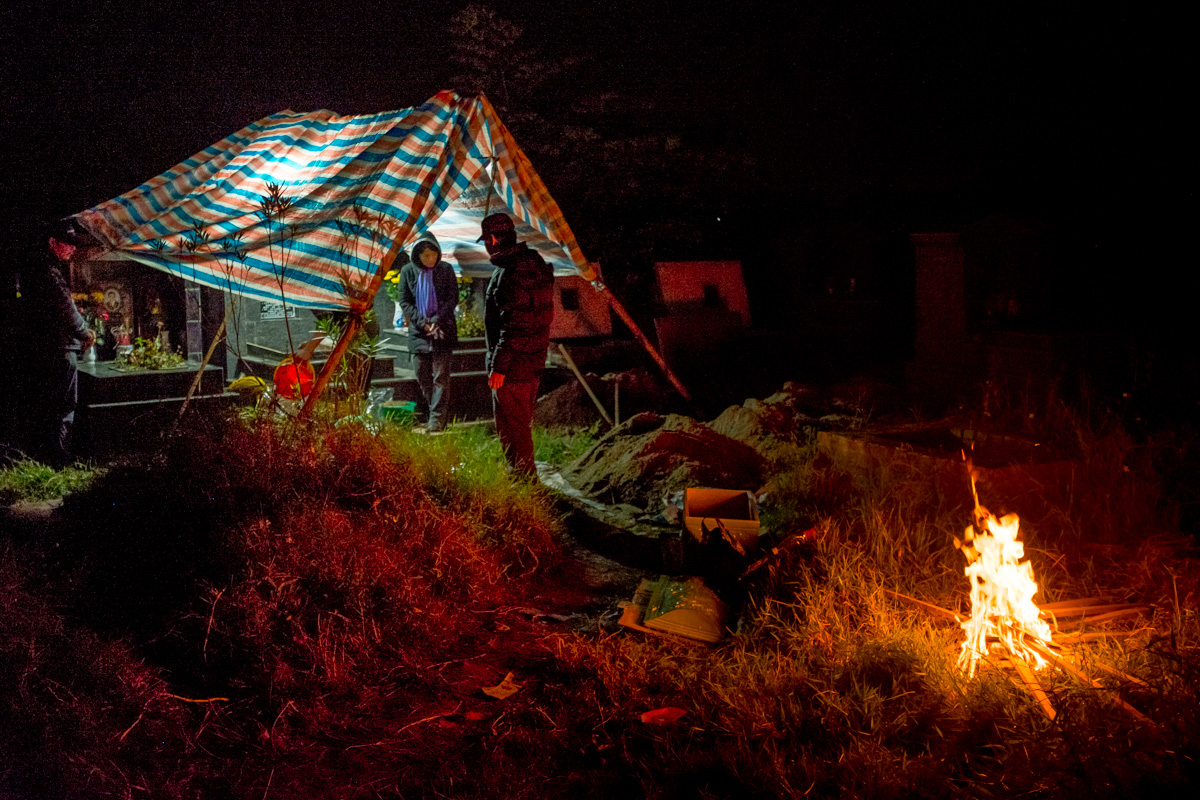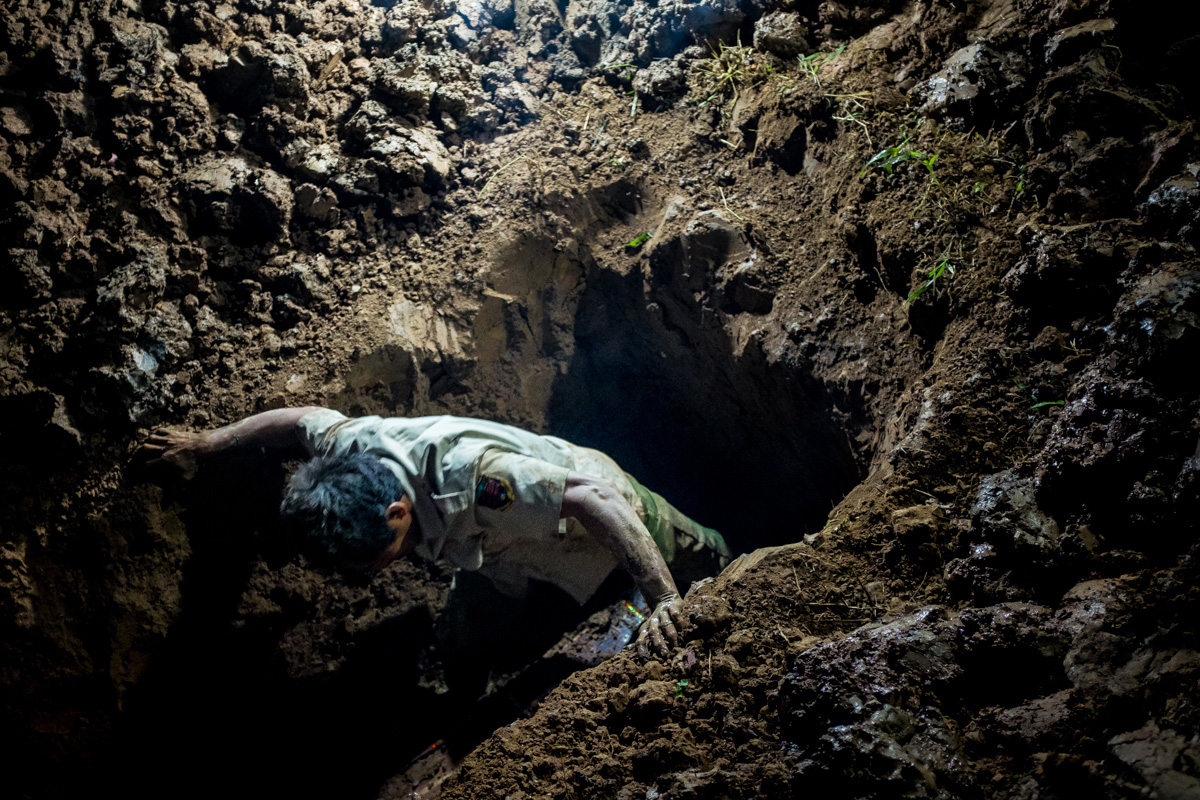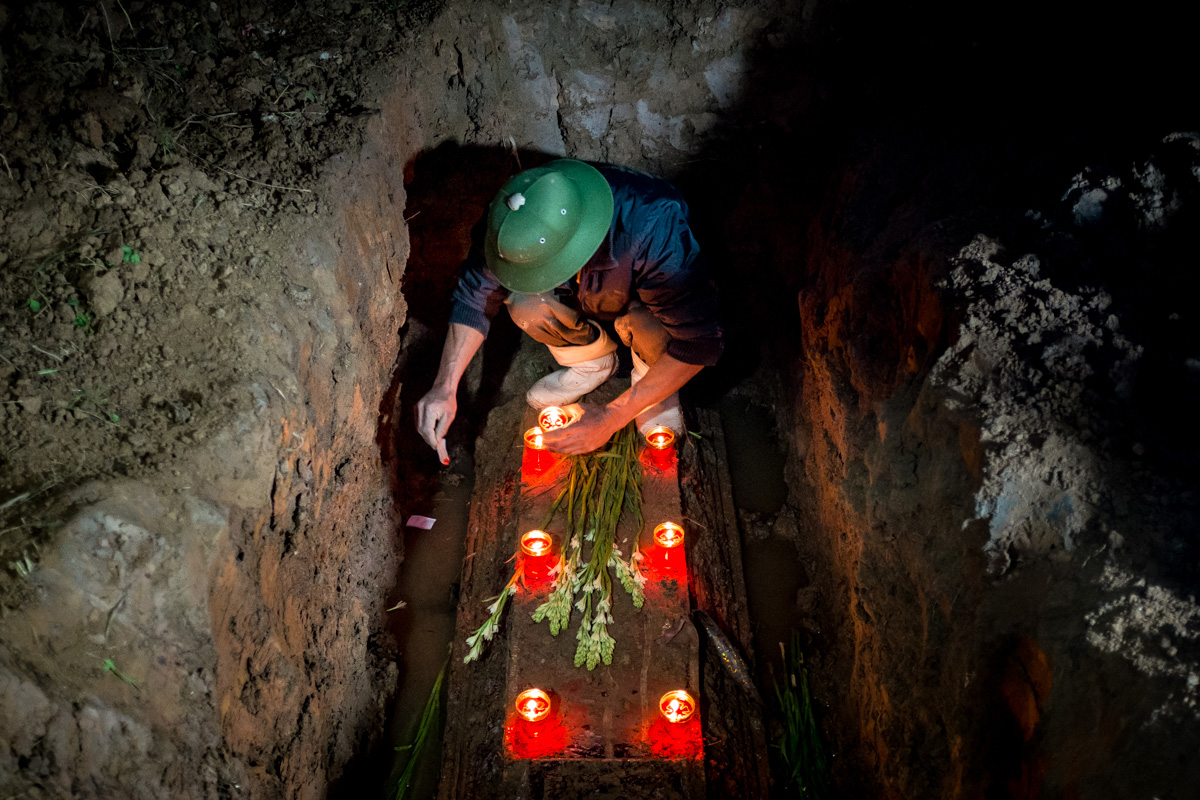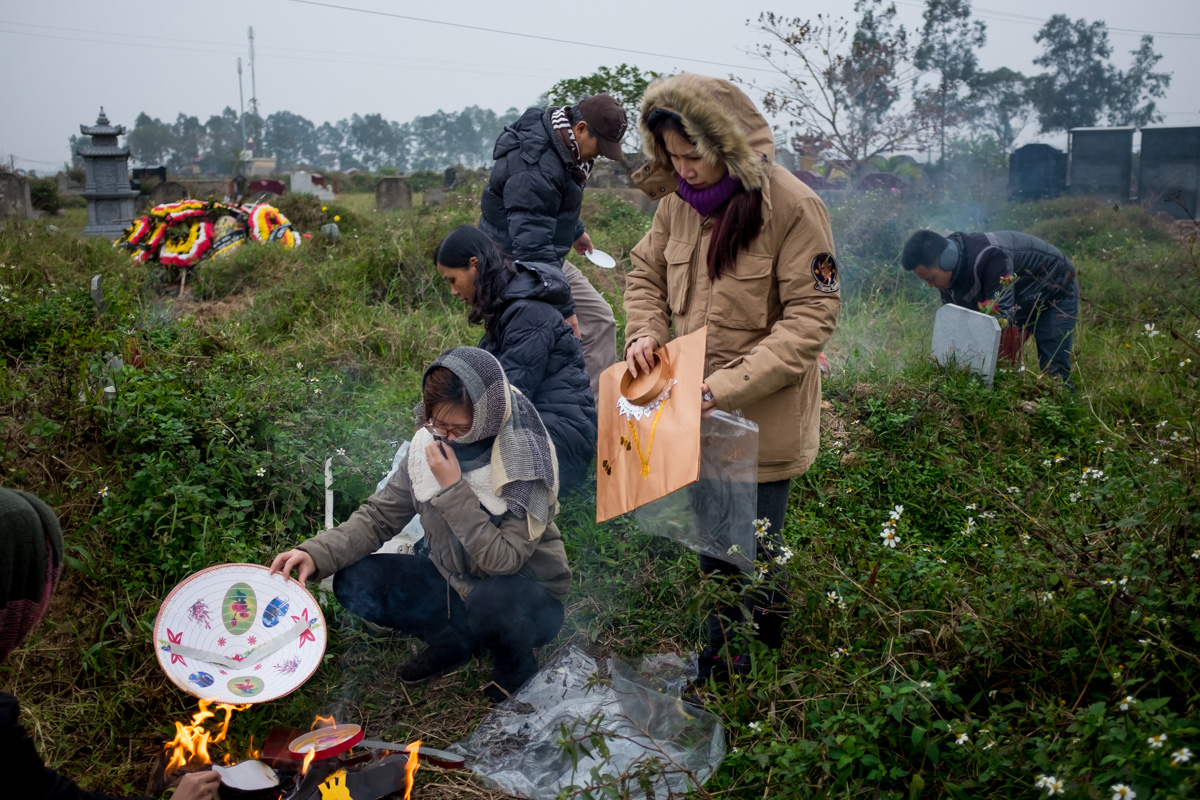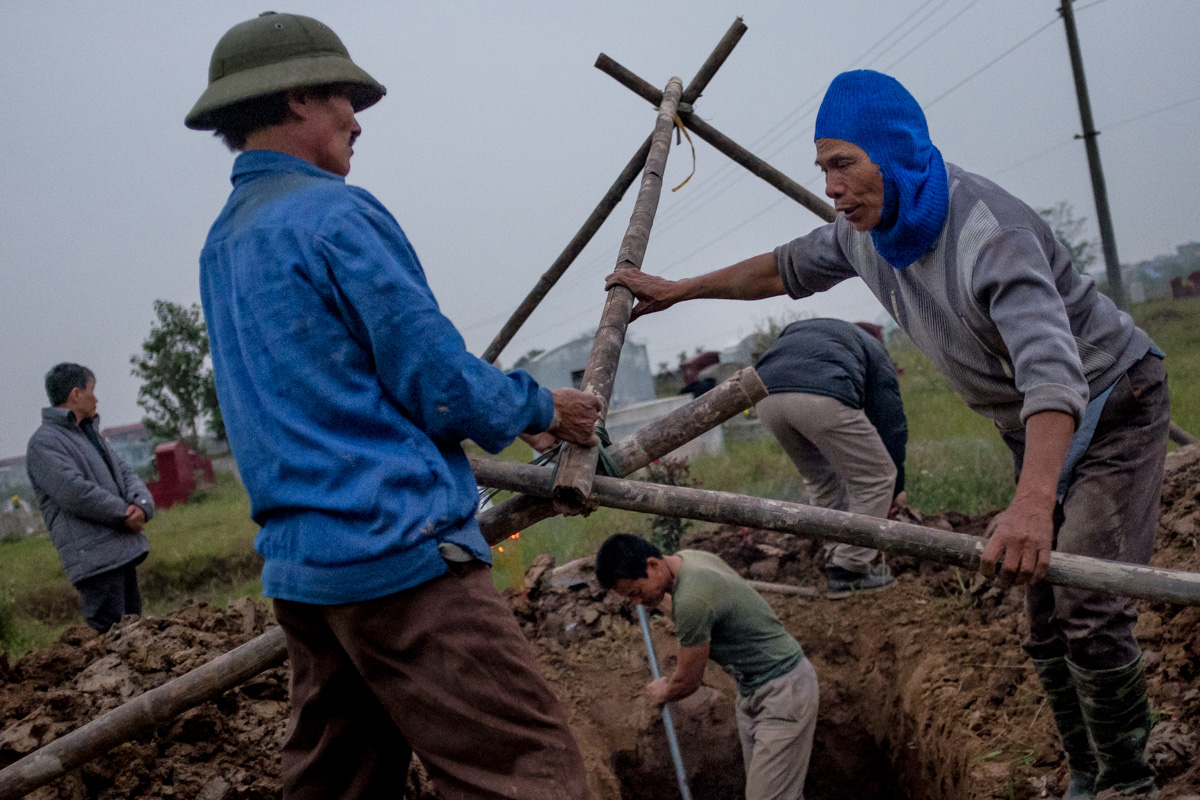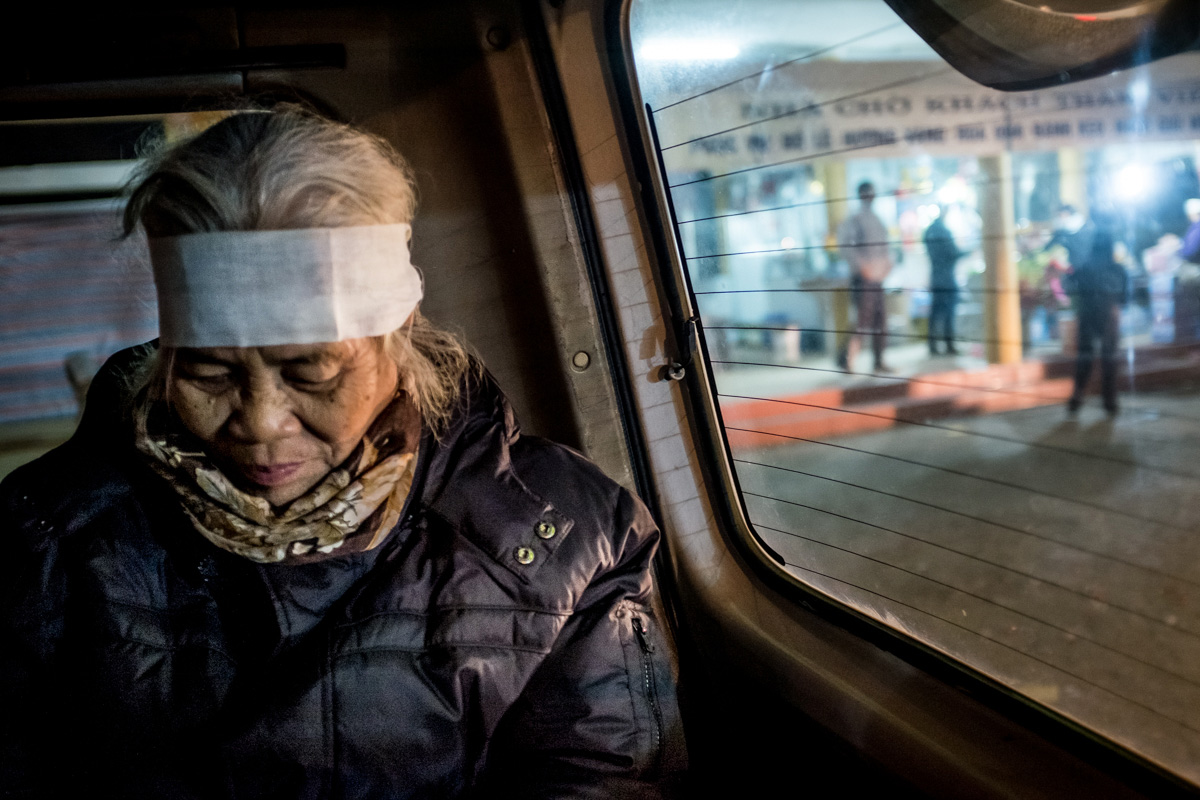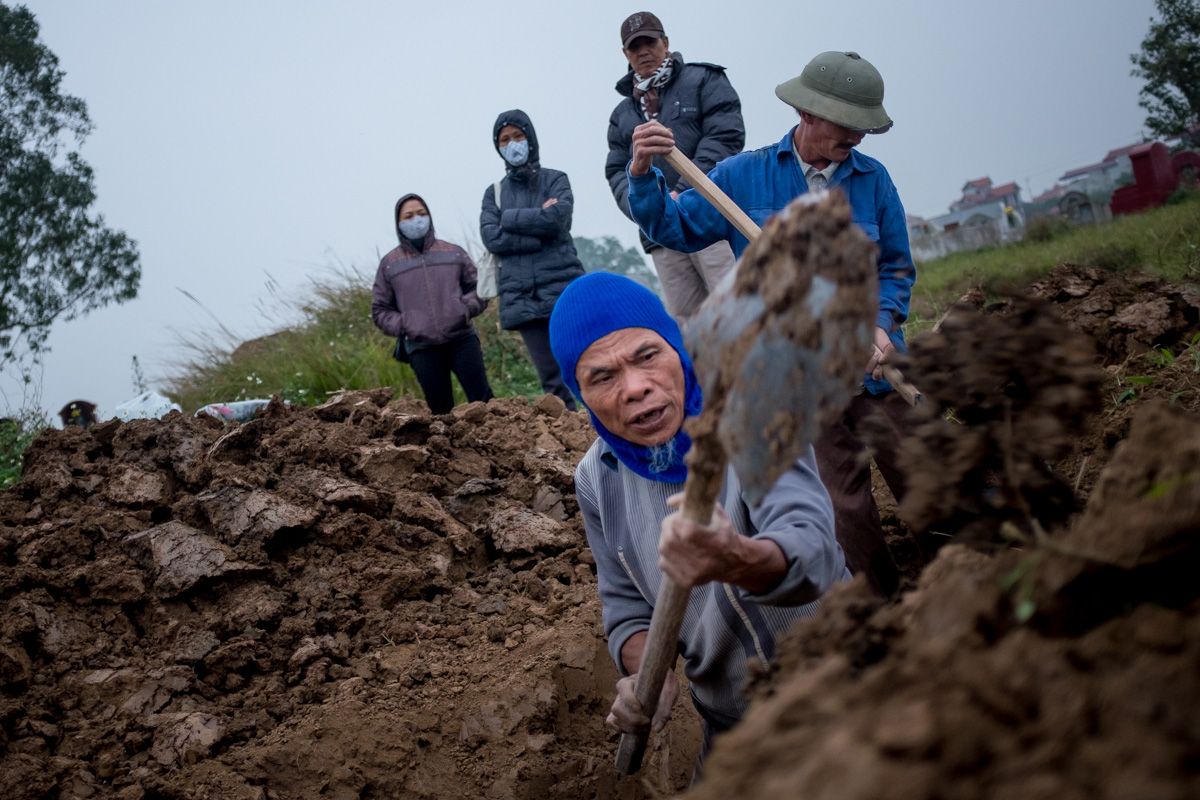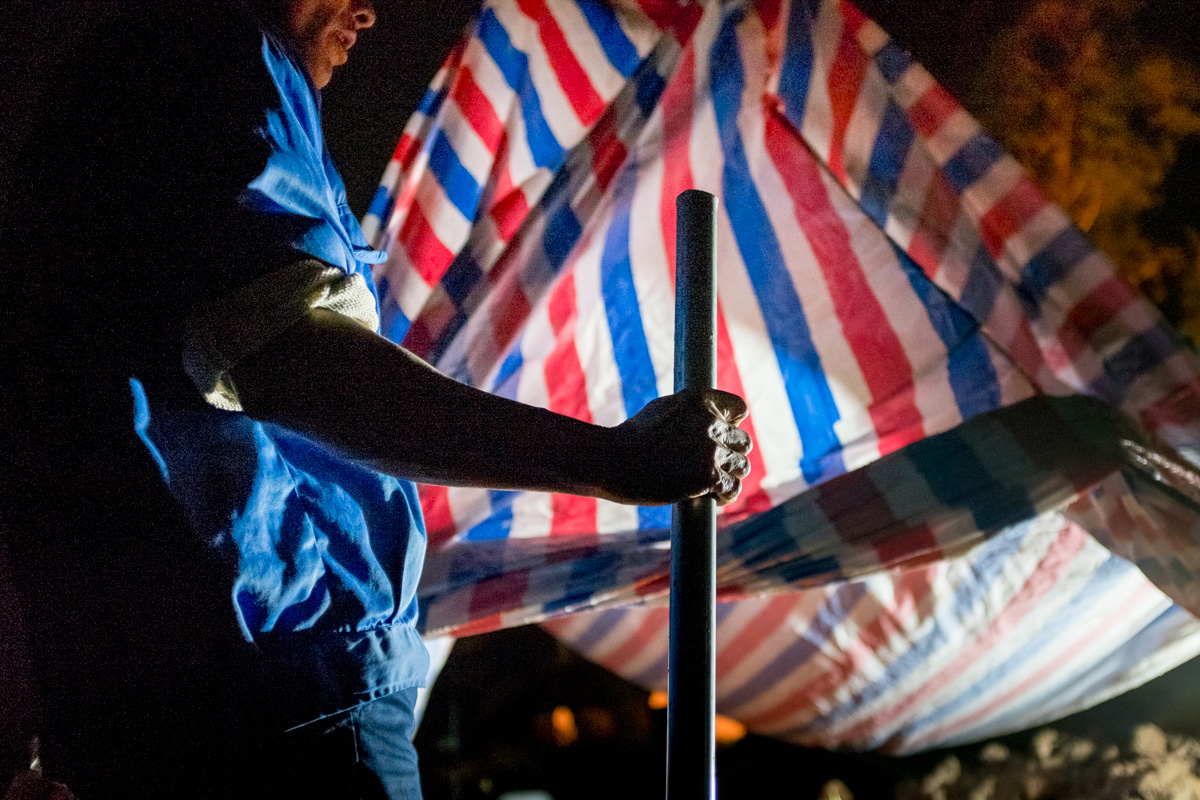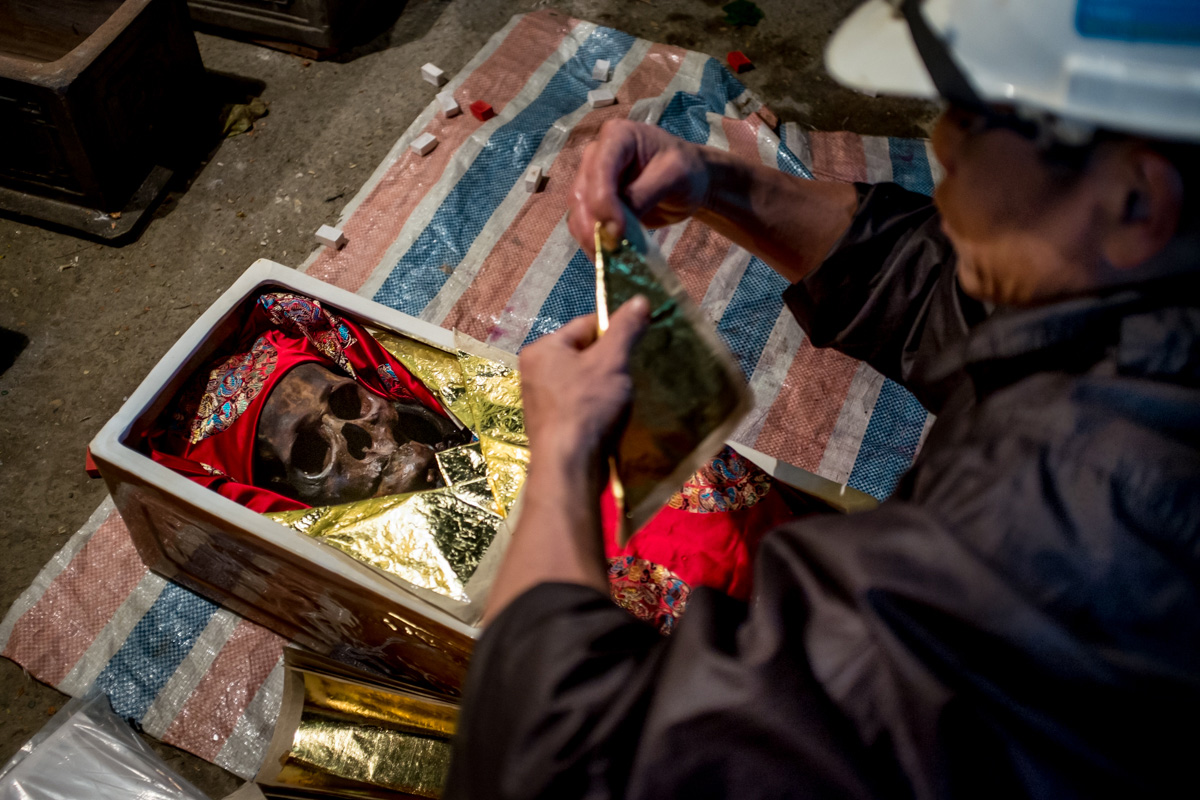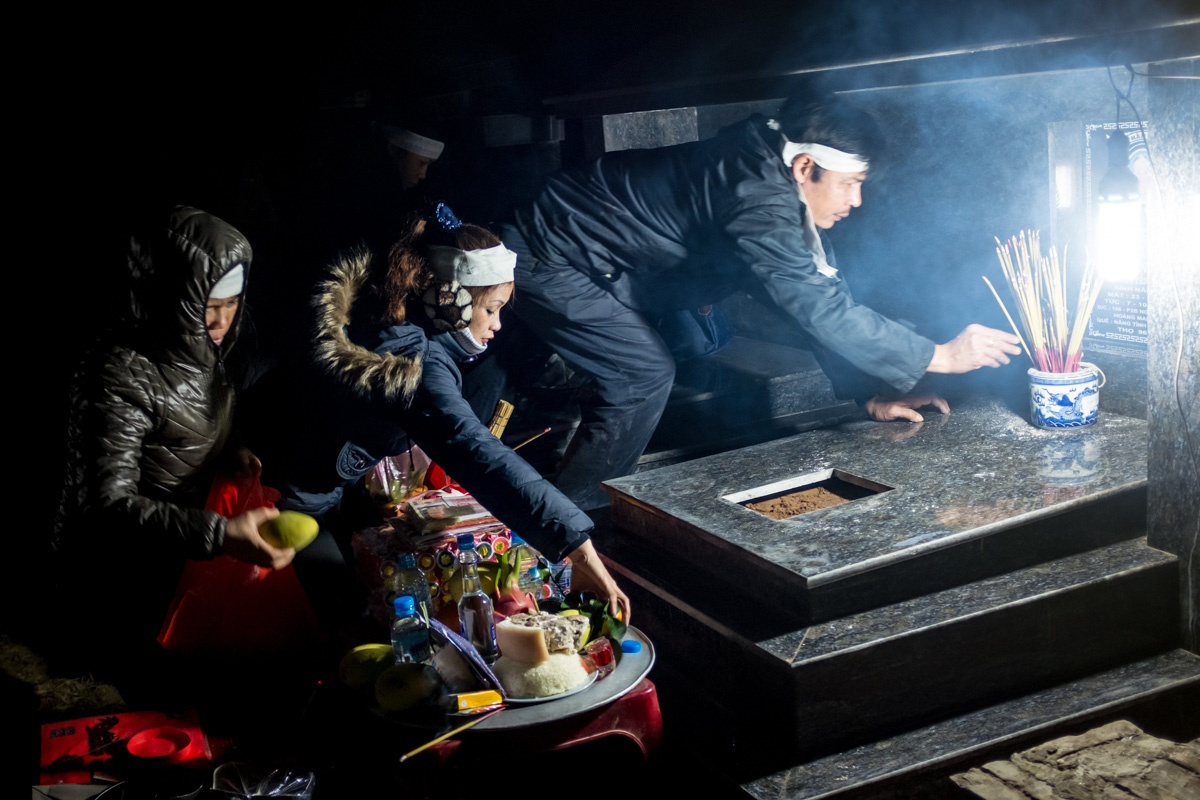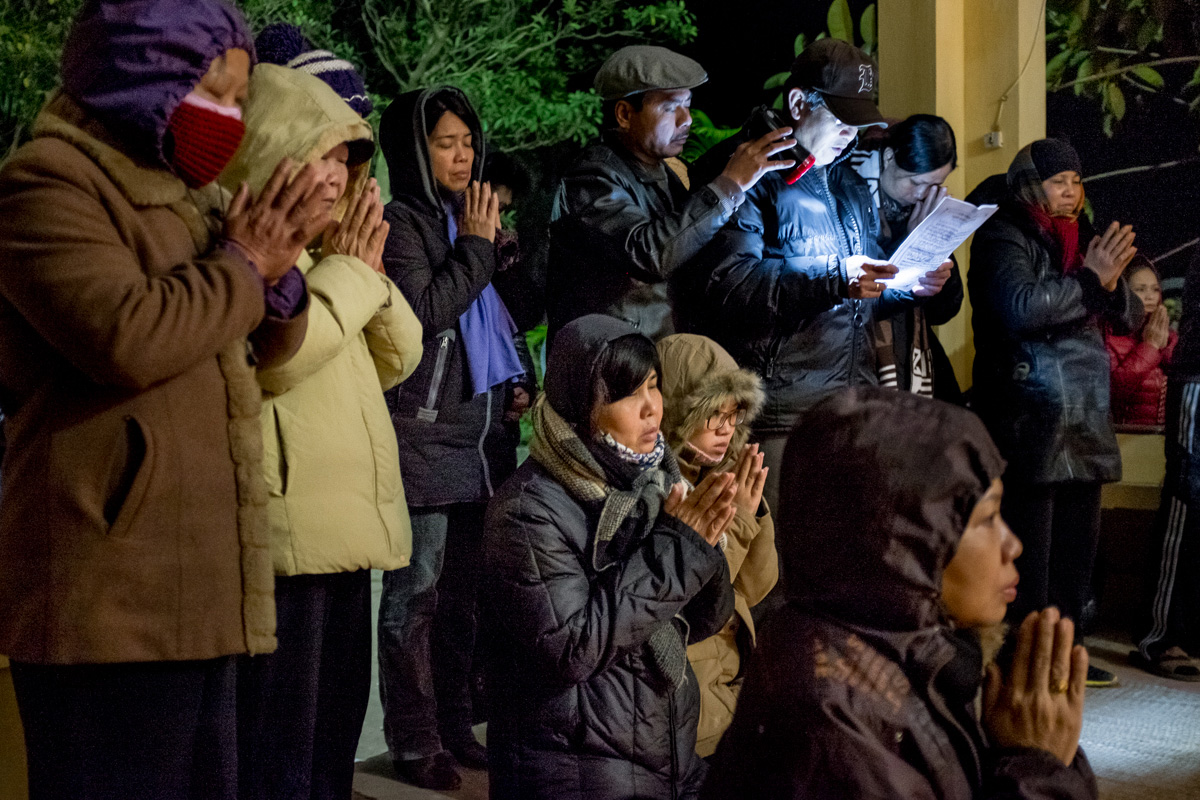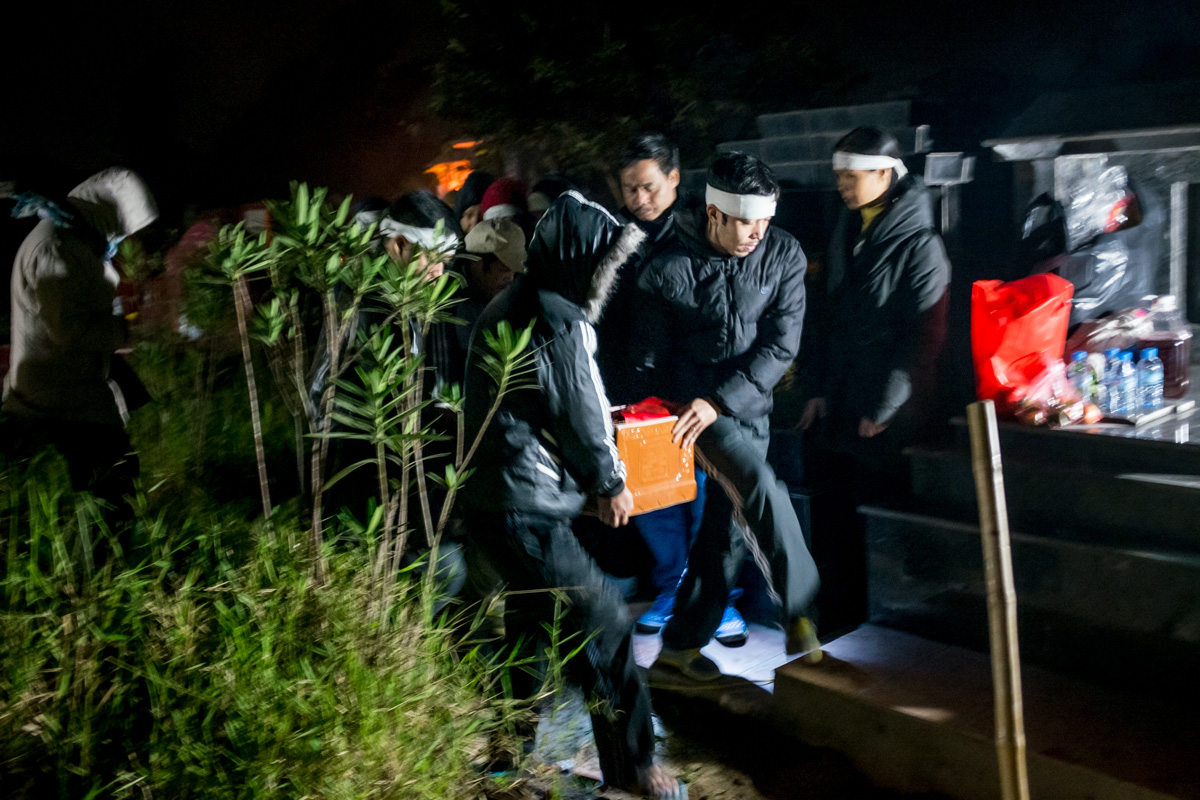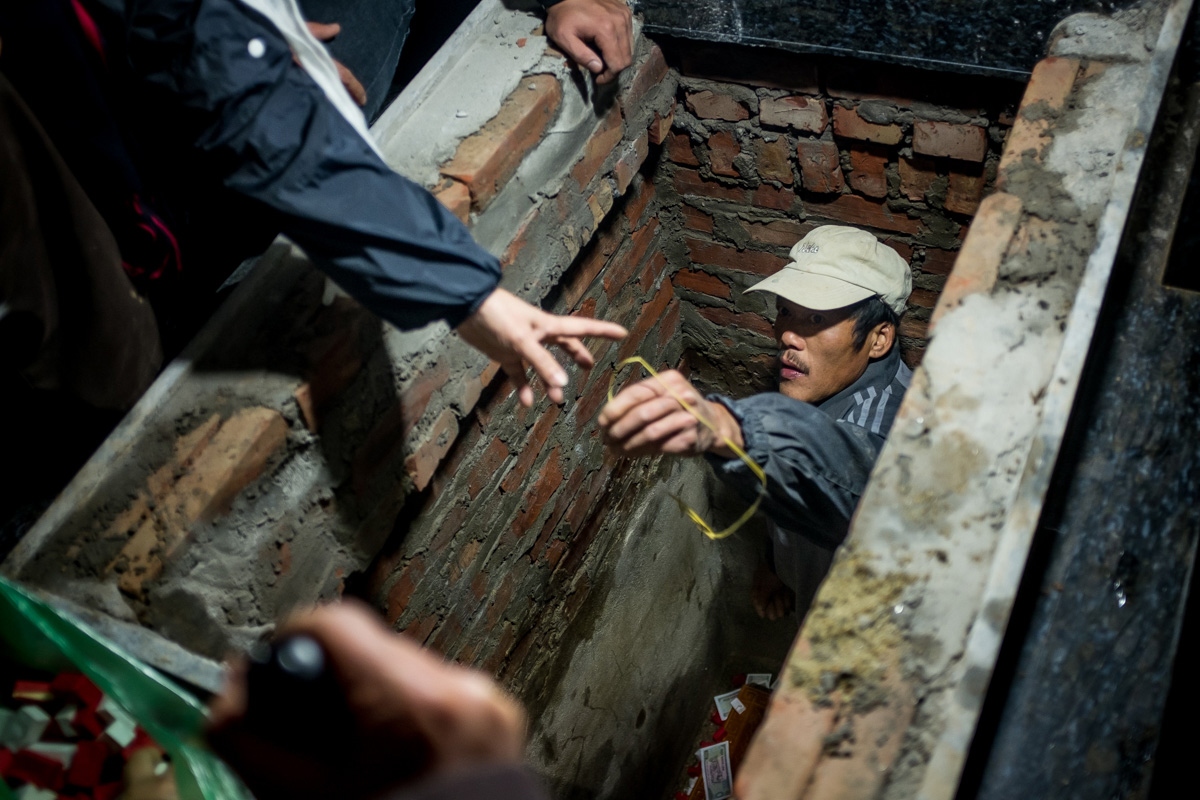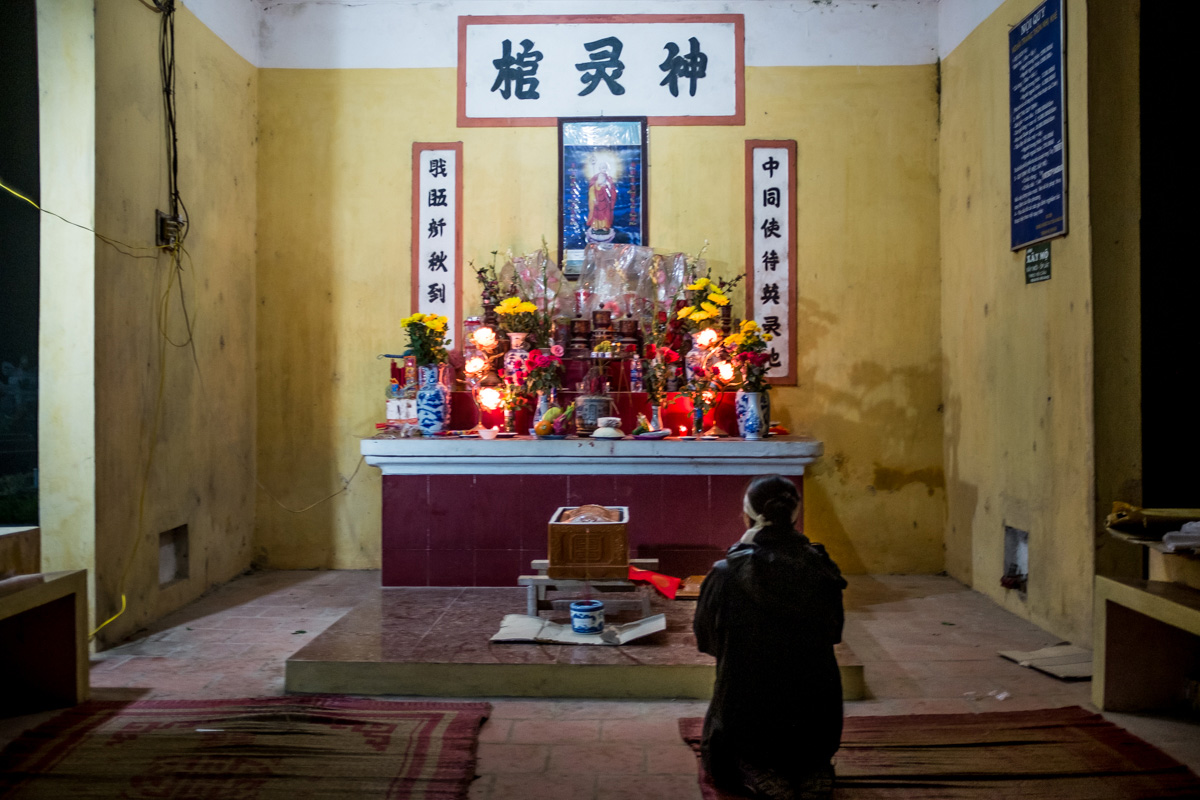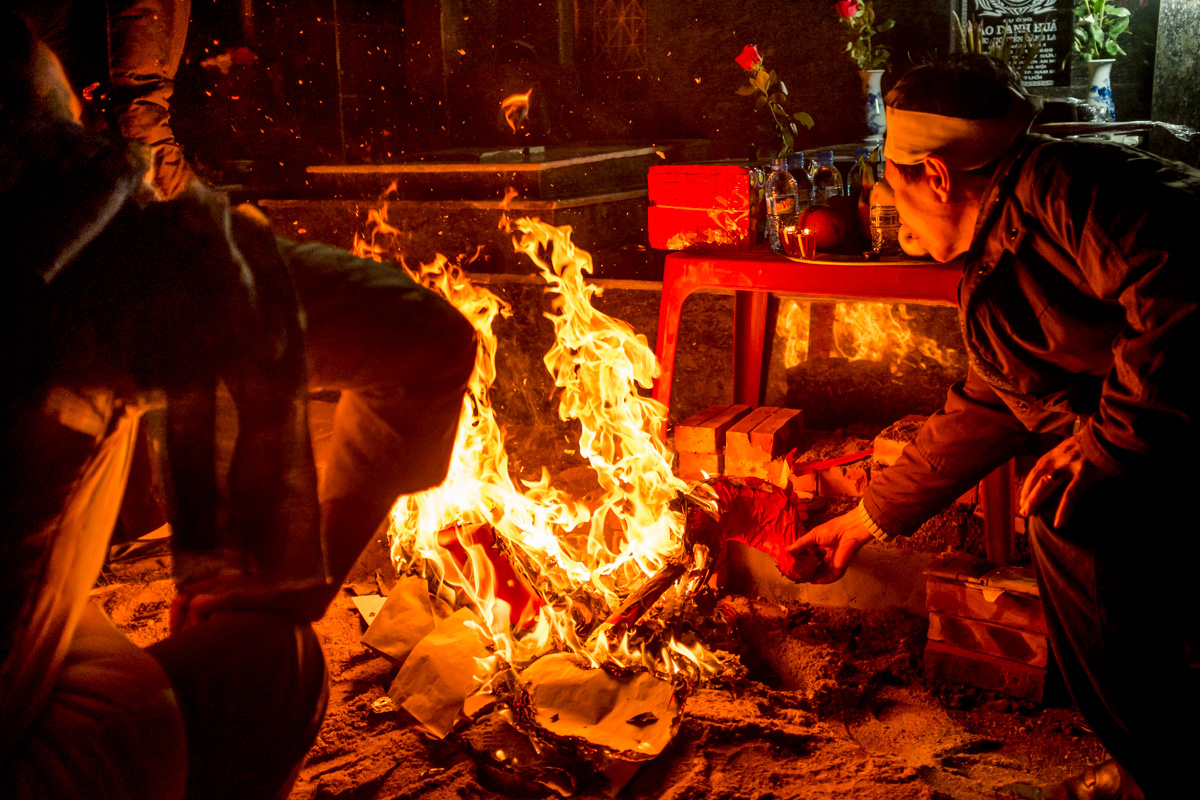Linh Pham
Photographer | info@linh-pham.com
In many parts of northern Vietnam, families uphold a practice known as cải táng, a secondary burial ceremony reflecting a deep-rooted respect for the dead. Instead of cremation, which is believed to cause spiritual distress, relatives first place the body in a temporary grave, allowing natural decomposition for around three years. After this period, the remains are exhumed: any remaining flesh is removed, and the bones, viewed as the vessel of the soul, are meticulously cleaned before final reinterment.
This ceremony carries profound cultural weight. The eldest son typically leads the ritual, washing the deceased’s skull in a gesture thought to ensure spiritual purity. Other relatives clean the remaining bones, a collective act symbolizing their shared responsibility to honor family lineage. Often timed according to auspicious dates and guided by local spiritual advisers, the reburial brings families together to reaffirm their bond with past generations.
By carefully returning ancestors to a permanent resting place, these communities reinforce a belief in continuity between the living and the dead, a core element of Vietnamese cultural identity. This photo essay documents each step of the reburial process, spotlighting a rarely witnessed tradition that underlines the enduring power of familial devotion.
Where Ancestors Rest Twice 2016
